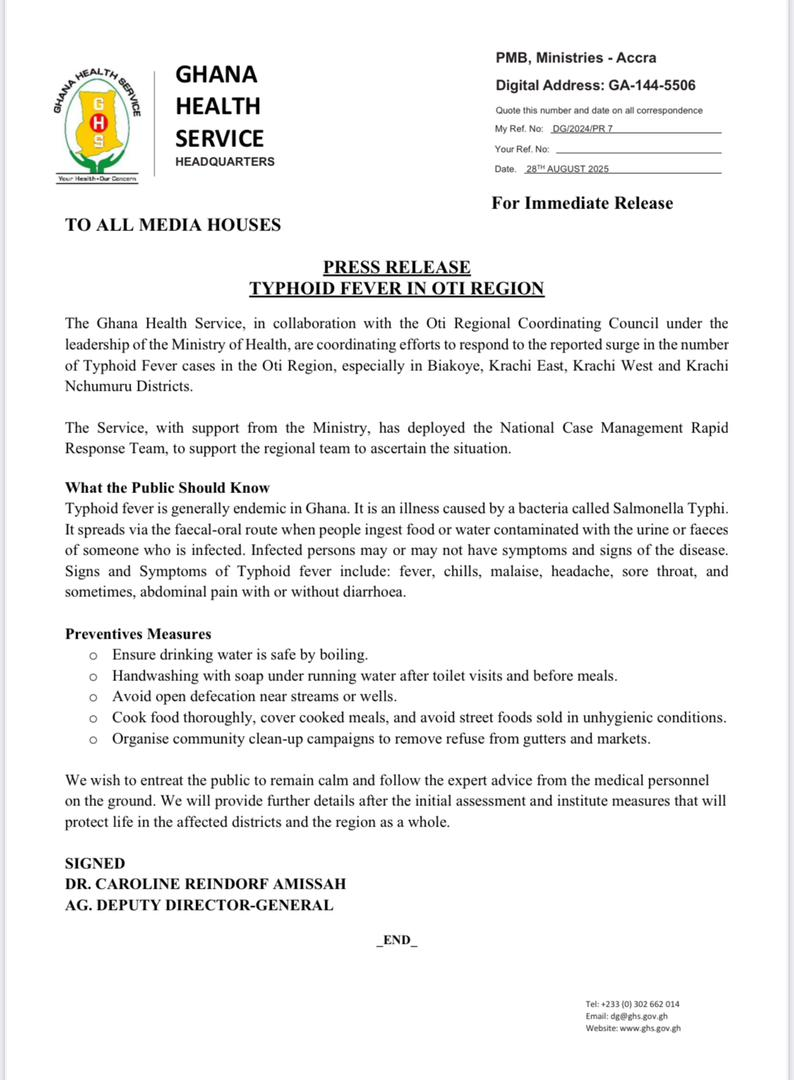The Ghana Health Service (GHS), in partnership with the Oti Regional Coordinating Council and with the guidance of the Ministry of Health, has initiated an emergency response to address a concerning surge in Typhoid Fever cases in various districts within the Oti Region.
Reports from GHS indicate that the affected areas include Biakoye, Krachi East, Krachi West, and Krachi Nchumuru, where health authorities have observed a significant rise in suspected cases in recent weeks.
In an official statement released on Thursday, August 28, GHS confirmed the deployment of a National Case Management Rapid Response Team to assist the regional health team in evaluating the situation and coordinating a prompt response.
Typhoid fever, caused by the Salmonella Typhi bacteria, is endemic in Ghana and is transmitted through the faecal-oral route, often when individuals consume contaminated food or water. Health officials emphasize that infected individuals may not always display symptoms but can still spread the disease.
Common symptoms of Typhoid fever include persistent fever, chills, general malaise, headache, sore throat, abdominal pain (with or without diarrhoea), among others.
The public, particularly residents in the affected districts, are advised by GHS to adhere to preventive measures such as ensuring the safety of drinking water by boiling, washing hands with soap after using the toilet and before eating, avoiding open defecation near water sources, cooking food thoroughly, covering cooked meals, and avoiding street food prepared in unhygienic conditions. Additionally, participating in community clean-up campaigns to eliminate refuse from public spaces is encouraged.
Authorities urge residents to stay calm and cooperate with health personnel on the ground. GHS assures the public that comprehensive measures will be implemented following the initial assessment by the team to contain the outbreak and safeguard lives.
“We urge the public to remain calm and follow the guidance provided by medical personnel on the ground. Further details will be communicated after the initial assessment, and measures will be put in place to protect lives in the affected districts and the region as a whole,” the statement concluded.
As a disclaimer, the views, comments, opinions, contributions, and statements expressed by readers and contributors on this platform do not necessarily reflect the views or policies of Multimedia Group Limited.








